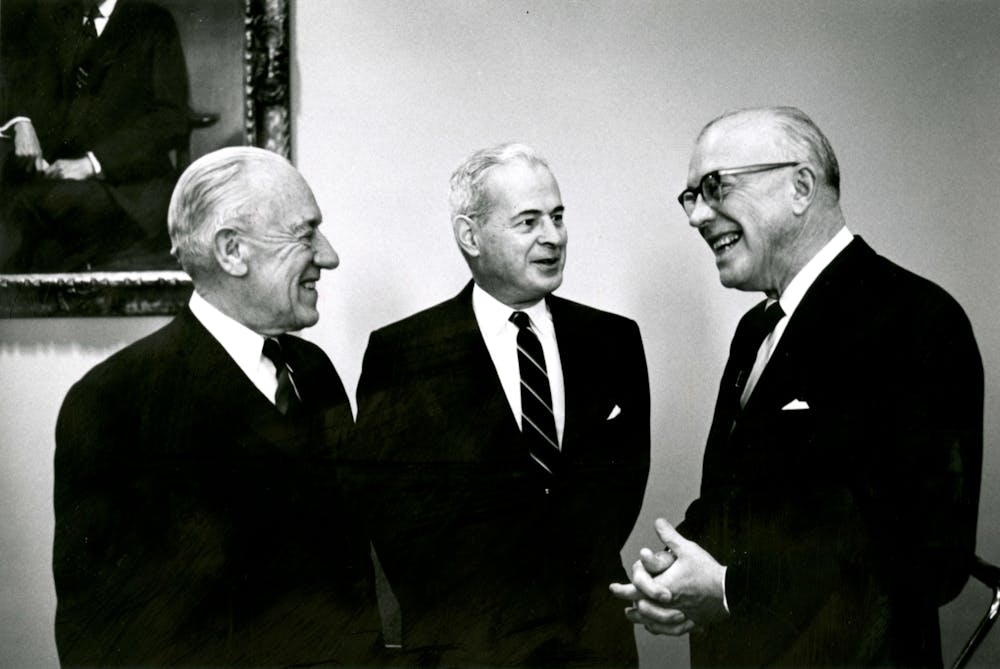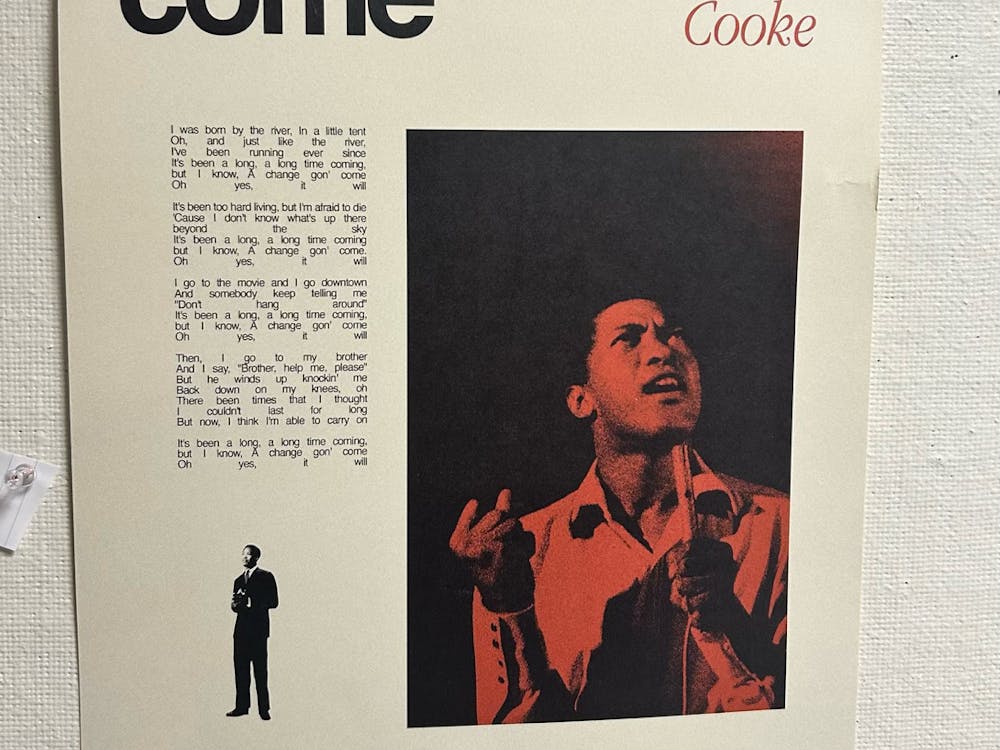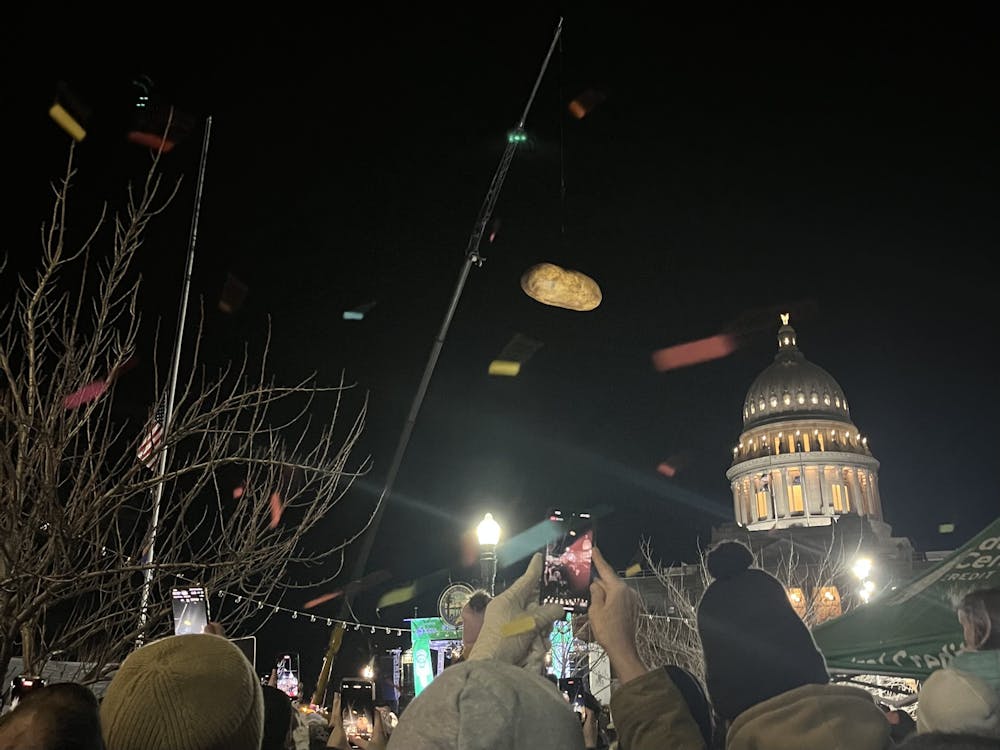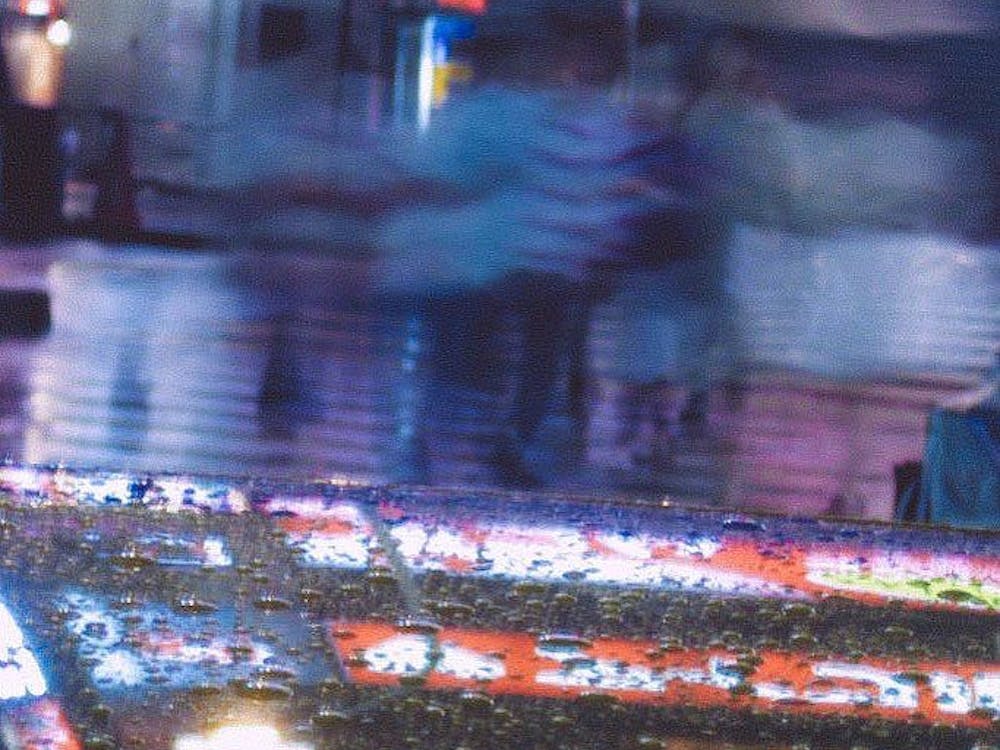Mark Reutter was involved with The News-Letter from 1968 to 1971 as the first City Editor, Friday managing editor and co-Editor-in-Chief with Ted Rohrlich. After graduating from Hopkins he was a reporter for The Baltimore Sun and is currently a senior editor and reporter for The Baltimore Brew.
The News-Letter: Why did you first decide to join The News-Letter?
Mark Reutter: Okay, this goes back to ancient history, you're going to have to laugh. So I was a student at Hopkins, then all male. And over the summer of ‘68, I received a package of material from Hopkins. I grew up in New Jersey, although my family on the Reuter side in particular, are Baltimoreans. So I was pretty familiar with the city. But I got something from Bruce Drake — these were the days of mail — and Bruce sent this package of material which was actually part of the package of the different opportunities at Hopkins, you know, clubs, athletic things, etc. And I had had a sort of vague interest in journalism. I was an avid reader of Life Magazine, and my parents got the New York Times daily, which I read and I had a low level job and the student newspaper in high school. But when I read Bruce's stuff, it just intrigued me, for whatever reason.
So I went to see Bruce and The News-Letter. I walked down to the Gatehouse, which is remarkably the same. It’s hard to say but I was enamored, a lot by him actually. He was this chain smoking kinetic guy, only around 5’1’, 5’2, thin as a rail, who had this huge energy. So I almost immediately volunteered. And immediately, because that's the way it worked, I was on whatever stories I wanted to do, and I initiated a few things.
What I was attracted to with Bruce is that he said we really want to be a journalist organization. Before, The News-Letter had more essays, kind of Village Voice, sports and essayist, tied into vaguely leftist politics. Bruce was trying to return it to being a newspaper, which, for whatever reason, I found very appealing.
Because I volunteered, I was doing everything. Within two months, I had suggested, well, we need to have better ties with the administration. And that meant, I thought, having a regular interview with then-President Lincoln Gordon, who was a fairly controversial figure. And I remember Gordon’s office hemmed and hawed and said, “Okay, you can see him every other week at 8 a.m. on Monday.” And once that started occurring, there was essentially one person that arrived at the old Homewood mansion every other week, and that was me. So I got a lot of exclusives.
By November of 1968, I suggested to Bruce and the others that we really got to cover something outside of Hopkins, we should be covering the city, there's a lot going on. They said, “Okay, you're the City Editor.” So I became, I believe, the first City Editor.
I was in November, December of 2016, interviewing Black Panthers over on Gay Street, and having a lot of fun. My grandfather had been a school principal at one of the major schools over there. So as a kid, I would go over with him. So these neighborhoods, remarkably, didn't bother me at all, because I had kind of grown up around them. And so that's ‘68-’69, I worked away at The News-Letter.
So in ‘69, ‘70, the next co-Editors were Richard Ben Kramer and Peter Harnack. Richard thought of this great idea that so much was going on, we might as well go twice a week. So we had always published on Friday, but let's do a Tuesday edition. And I was made the Friday editor. And during that time period, we made arrangements to work with the creative writing program, and I guess some of his graduate students took pity on us and we kind of made an arrangement that they would critique The News-Letter.
70-71 was a spectacular year, I think for The News-Letter, and it was a really pivotal year at Hopkins. That was the year that there was a very brief takeover of the Homewood house and there were the Cambodian airstrikes And then at the same time, in 1969 and 1970 there was a rebellion by some of the senior college professors against Lincoln Gordon, who was quite unpopular, for all sorts of reasons. And we really got in the thick of things there. We knew both sides of it, and reported way ahead of anyone else. And he was ousted.
And then after I graduated I went to work for The Sun as an intern, having been a summer intern before, and then was hired by The Sun, which was then The Sunday Sun. For a year in between I went to the Columbia School of Journalism. But where I learned stuff was at The News-Letter from just the energy of the kids and us doing things, trial and error, and certainly the two summers I worked for The Sun and then went on to their staff.
N-L: Can you tell me more about what happened with then-President Lincoln Gordon?
Yeah we did play a role in that, I think. And here's what's kind of interesting is that I, what we were writing about the small group of professors who were basically staging a coup. And I got to know who they were and would go and have these sort of secretive meetings with them. I wrote one story around a month before he was officially ousted, which we ran as a full inside page. We just talked about the whole situation, but gave a lot of the talk about the history of Hopkins and the closest instability, because it had a lot of financial instability in the late ‘60s and that was part of the problem. We talked about Licoln Gordon. Hopkins was always very insular. And one of the things that it prided itself on was that it was a University with extremely high, old fashioned standards, with very small departments, but the departments were world class. And many of the professors would bristle over comparison, especially ones that were less than charitable to Harvard or Yale, because they thought they were right up there. Might be true, who knows? One of Lincoln Gordon's biggest mistakes, and he was not adroit, even though he was a Harvard history professor and a diplomat in Brazil. But of all those things, he wasn't very diplomatic. And he made constant faux pas that became the rap sheet against them by comparing, at faculty meetings and others, Hopkins with Harvard.
But there was a lot of financial turmoil and people just didn't like him. The other dynamic is that for the previous, 15 or so years Milton Eisenhower was much beloved. And that time period there were really three or four white senior males who dominated both the Homewood campus and medical school, and Gordon was an intruder. And then there were these financial problems. And then there was all this turmoil. So he was ousted. And we wrote about it. And I don't say predicted it, but I think we wrote a critical piece that put all of this together. And what was personally interesting to me, and I still remember is that half of this story came out in April, 1971 and I was there at The News-Letter.
It was Sunday night, and we're doing the Tuesday paper, because on Sunday nights we put the editorial copy in. Ted [Rohrlich] and I were in a little office to the rear right and suddenly, there was this noise and stirring. And it was suddenly that Mr. Gordon was coming down the steps. Mr. Gordon is here and would like to talk to you.
And The News-Letter wasn’t quite a fraternity, but we had some childish stuff on the wall. And there was something along the lines of, Hopkins picks Gordon's nose — it was still very innocent. And I remember one of the guys literally jumped on a desk and stood to block this photo of Gordon. But Gordon came in with this little white dog of his little white dog.
And he walked into our office and he sat down — we tried to get him a chair, we hardly had a third chair there — and he started talking. And he told us, and this would have been roughly a week before it became official. He didn't say he was, as I recall, he didn't say he was leaving or being fired. But the whole aspect was that. And he just talked, and we listened. And this was a very proud and taciturn and gentle guy. And what he said was, he kind of looked at us and he said, “You know,” and this was sort of the sign, he said, “Your coverage of me has always been fair, and I wanted to come down and tell you that.” And then he left. And I'll always remember that. And I still am taken aback by that it's you know, it's one of those little human moments. And I guess we were hard hitting, but we were fair.
N-L: What are some new initiatives that started while you were working on the paper?
MR: One of the key innovations we did, going back to wanting The News-Letter to be relevant to everyone, not just as a student newspaper, but to have gravitas and influence and to be taken seriously by faculty and others, Ted and I initiated profiles of faculty. They would be relatively free, they wouldn't be super long, maybe 600 or 700 words and would not be fluff, but would be kind of a portrait of these people, including a couple administrators.
And what was really funny about that is that, I think we did a pretty good job, we got some of our best reporters to write and we just asked their thoughts about the work they did, and things like that. And that would have been when I was the Friday editor, and then going on to when Ted and I were co-Editors, and boy was that a success on all sorts of levels.
It soon became really funny that on a Friday afternoon, we would often get visits by a secretary. And the secretary would come and sort of say, “Well, do you have a couple extra?” Or “Do you have some extra copies?” And it would be the secretary of the person we had portrayed. And a couple of times they came and we said sure, and then we would see them march out with so many copies, maybe 30 copies all tied up together, a whole stack, and we would just laugh and laugh. But it was very effective.
And so that helped me indirectly, I didn't know it at the time, but when we did do this really inside, deeply sourced reporting on all of this stuff about Gordon, that is one of the things that helped us. The reputation and contacts with faculty.
N-L: Is there anything you’d like to add?
MR: I believe that journalism is a calling. And that the strength of The News-Letter really is that Hopkins seems to attract good, liberal arts, thoughtful people as a rule. And the fact that it doesn't do journalism, I think is a strength. I learned by doing and just I think I got my “training” subconsciously by avidly reading the New York Times and Life magazine when I was a kid, which I thank my parents for, but it's a calling and you either like it or not.
And the graduate students in what was this very small creative writing world were greatly encouraging, but even the professors were. It was just a nurturing environment. We didn't get a degree. And if someone were to ask me how I see myself as a journalist, I’d say I see myself as an inheritor, or a follower or a disciple of progressive era reporting, because I really like the intersection of how business and economics works.
And I had a great time. I thought the four years at Hopkins was great. And so for whatever reason, I just seem to be doomed to know a hell of a lot about Baltimore, and, you know, 50 or so years later, even though I've lived in other places, this is the home base.





